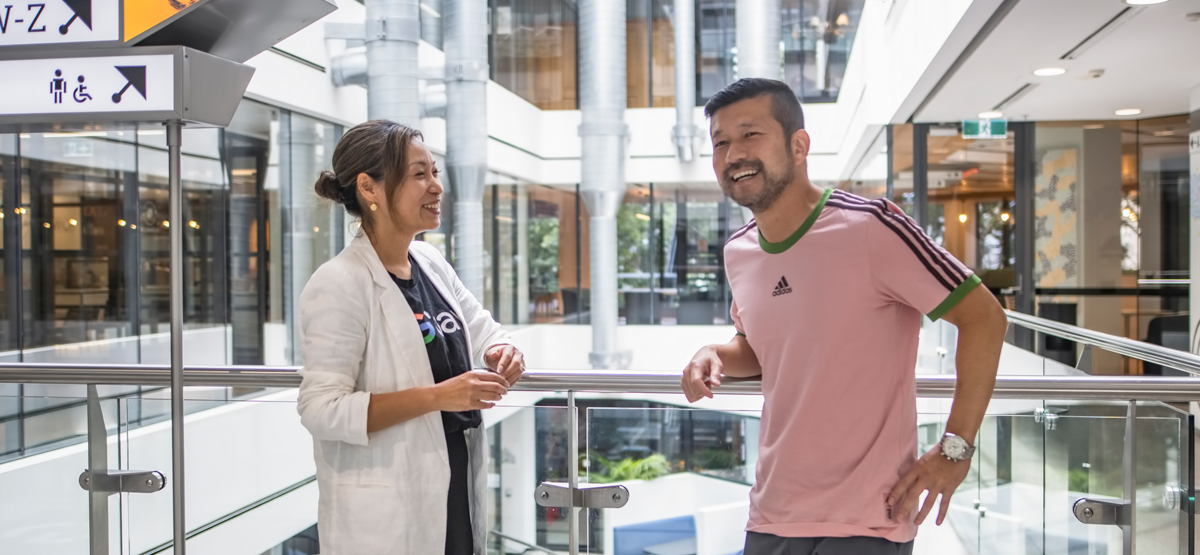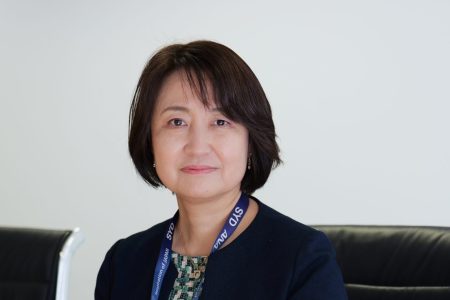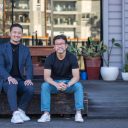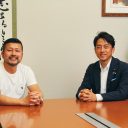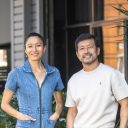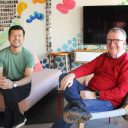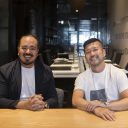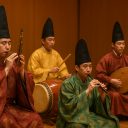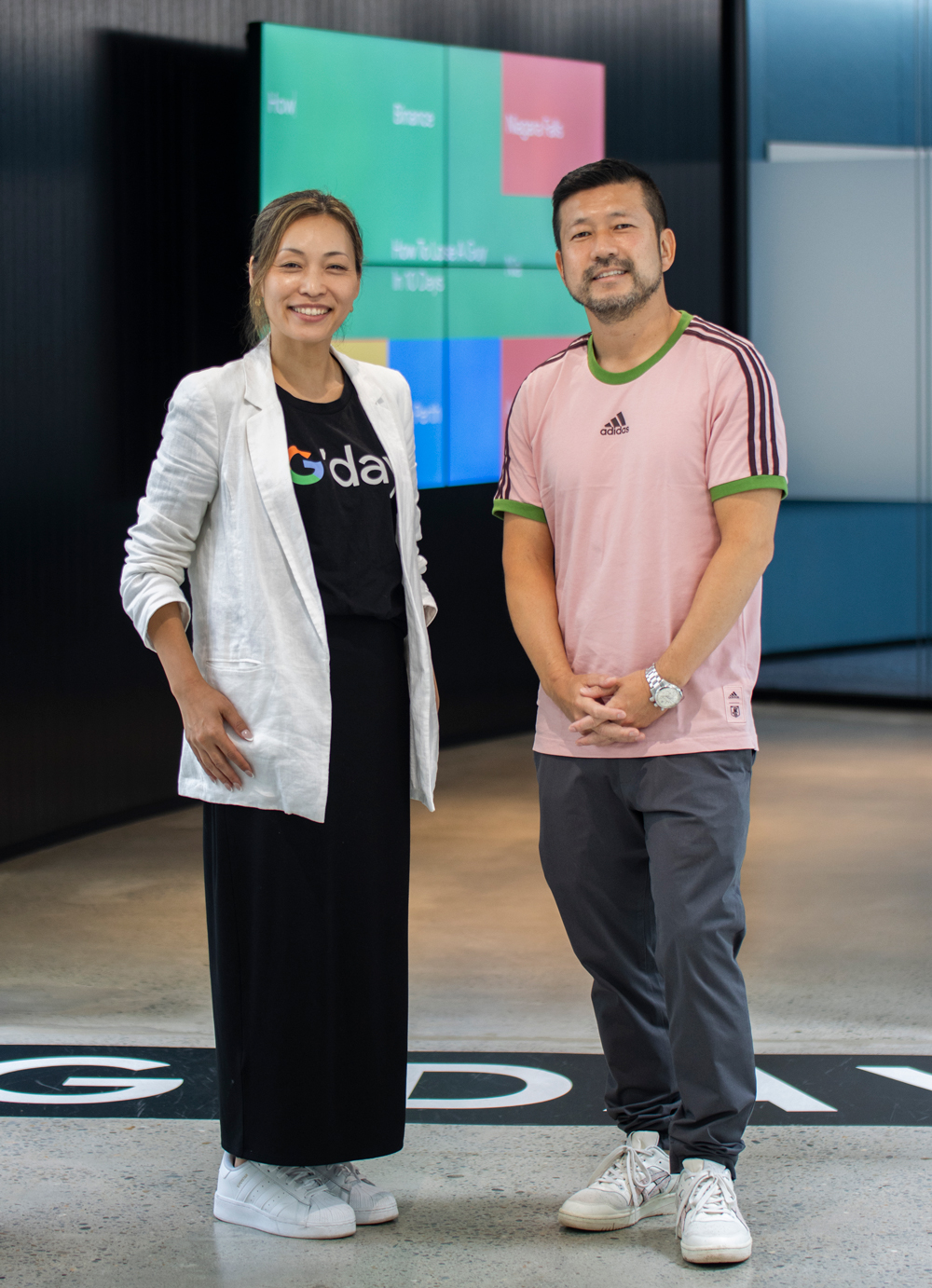
In Conversation Vol.25
In this ongoing series, Yoshinori Sakuno, the founder of cross-cultural marketing company doq®, who has been active in numerous business scenes and serves as the chairperson of Nichigo Press, engages in a dialogue with key persons in Australia-Japan relations and business. This time, we welcome Jo Keiko Terasawa, who has worked at Google for over 10 years and currently serves as the Head of Inclusion and Equity Programs for the Asia-Pacific region based in Sydney.
(Photography: Satoko Clarke, Translated from Japanese by Joy Hansen)
PROFILE
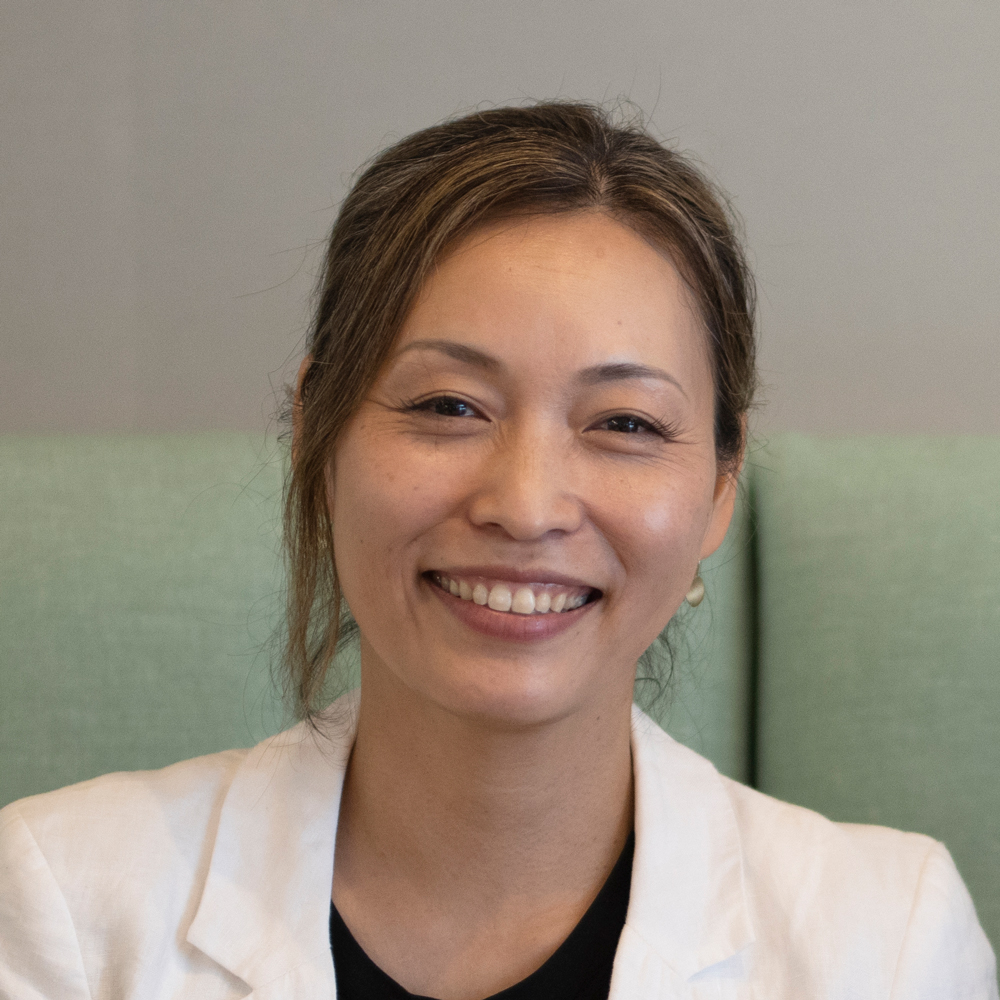
Jo Keiko Terasawa
Born in Izumo City, Shimane Prefecture. After graduating from Tokyo Woman’s Christian University, Terasawa obtained a master’s degree from the University of Bath. Upon returning from the UK, Terasawa started a career in medical communication and research expertise. Subsequently, she changed careers to HR and joined Google in 2011. Terasawa immigrated to Australia and obtained The Master of Labour Law and Relations (MLLR) degree from the University of Sydney. She currently serves as the Head of Inclusion and Equity Programs Strategy for the Asia-Pacific region.
PROFILE
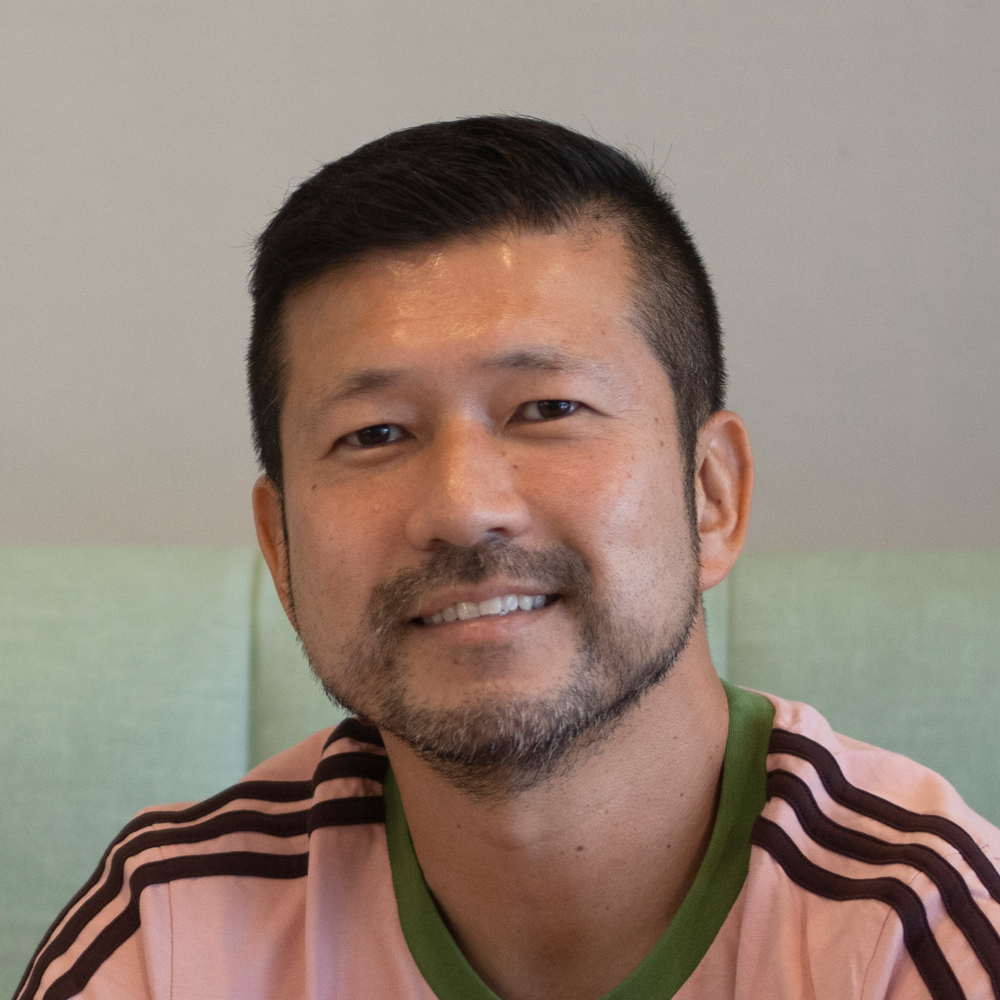
Yoshinori Sakuno
Founder and Group Managing Director of doq®. After gaining experience in the APAC and Western markets at the U.S. advertising agency Leo Burnett, he founded doq® in 2009. He holds an MBA from University of NSW’s AGSM and a Master’s degree in Digital Media Management from Hyper Island Singapore. He was a finalist for the “Ethnic Business Awards” that honour immigrant entrepreneurs and received the 2021 NSW State Export Award for the Creative Industries sector’s Best Company.
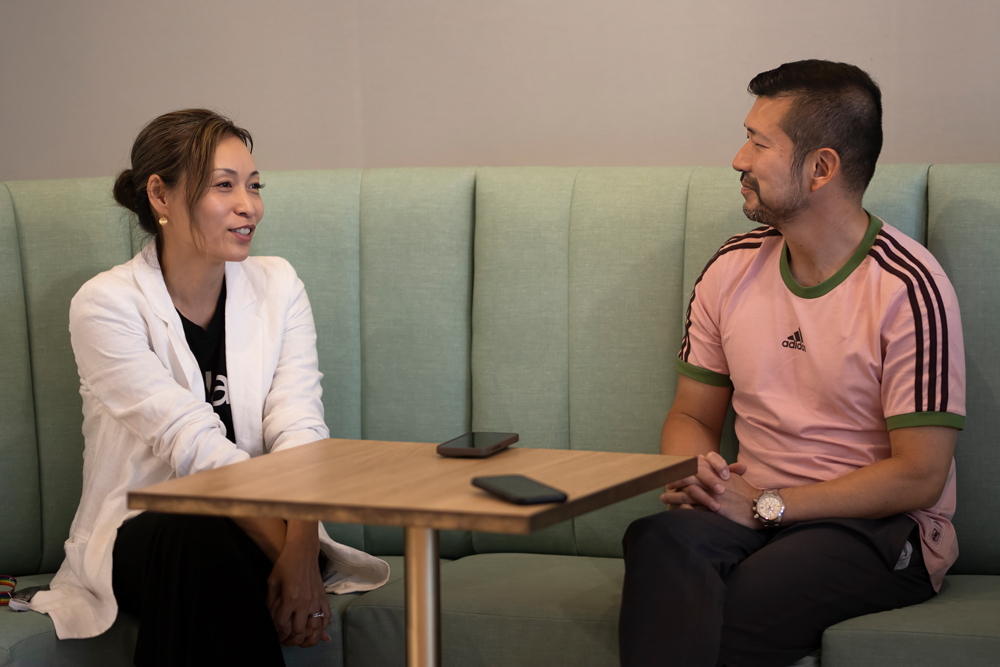
Sakuno:What were the circumstances that led you to come to Australia?
Terasawa:I worked at Google Japan for 5 years, and when I was thinking about what to do next, I had a period of contemplation. I was considering either taking on a different role within the company or transitioning to another company in Japan. However, since I had previously discussed with my husband, whom I met in the UK, that it would be nice to live abroad again someday, I started openly looking for opportunities regardless of the country. We have three children, and at the time, the eldest was just entering primary school. Considering various conditions such as a place where both of us could work, and my husband, who is not a corporate professional, could use his qualifications, and exploring cities with Google offices, Sydney emerged as an option. Although neither of us had been to Sydney before, we heard great things about it, so we decided to try.
Sakuno: I see. So you transferred within the company.
Terasawa: Yes. It’s called geo-transfer, where I retained my position but moved offices. I was already responsible for the Asia-Pacific region, and since there was a business case, I was able to move smoothly in March 2016.
Sakuno: It sounds like everything came together – luck, connection, and timing. Were you born and raised in Japan?
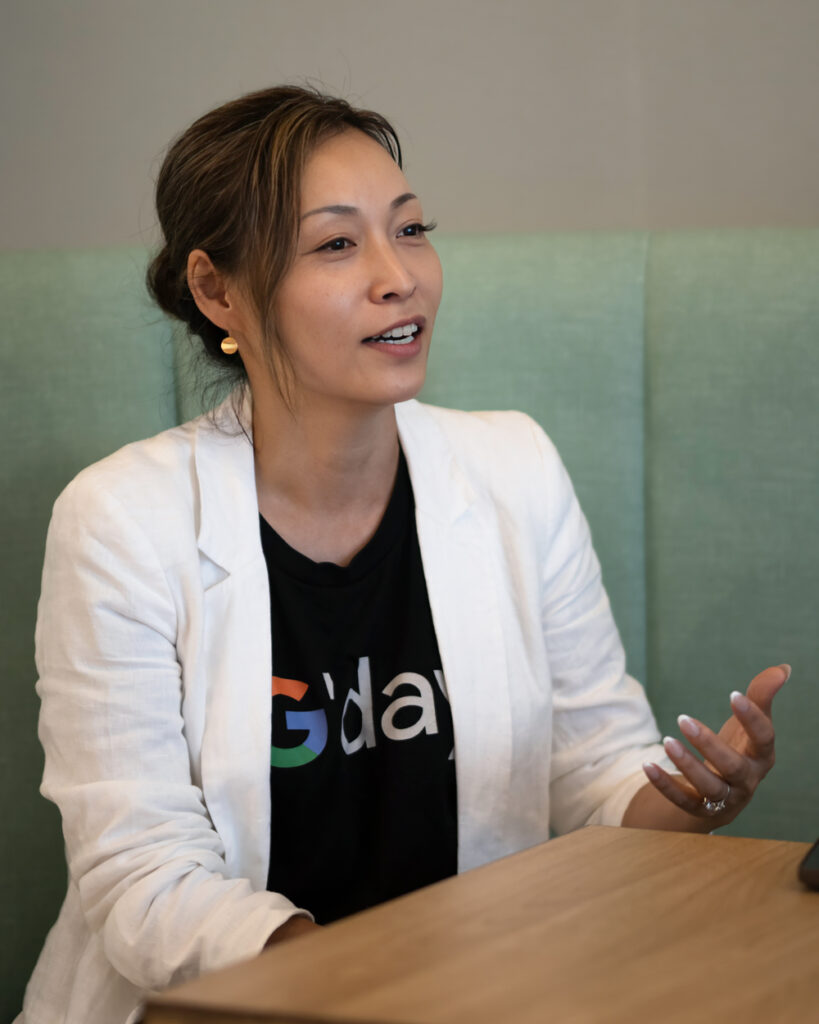
Terasawa: Yes, until I received my bachelor’s degree. I grew up in the countryside of Izumo City, Shimane Prefecture, and moved to Tokyo for university. After graduating, I went to the UK for graduate school, where I studied simultaneous interpretation. Upon returning to Japan, I worked as a researcher in Medical Communication at Tokyo Medical University, creating textbooks on Medical English Communication for doctors and nurses, and giving lectures to medical students, and being involved in clinical trial projects with pharmaceutical companies and the operation of international NPOs in the medical field.
Sakuno: That’s a completely different job to now. What triggered the career change to Google?
Terasawa: During my 4 years working as a medical researcher in Tokyo, I noticed a significant lag in diversity. Rather than simply moving to the HR department within the organization I was then a part of to instigate change, I wanted to leverage my abilities towards a more forward-thinking approach with a longer-term perspective. Therefore, I decided to transition to a job specializing in HR. I was fortunate to receive an opportunity from an HR consulting firm during a period when they were receiving an influx of projects supporting major multinational clients. I was welcomed due to my willingness to learn in a new field and my proficiency in English, which led me to embark on the path of HR from there.
Sakuno: I see. So that’s the path you decided to pursue.
Terasawa: Yes. I gained 4 years of consulting experience there, and then I joined Google.
A Dynamic Environment with Eye-Opening Experiences
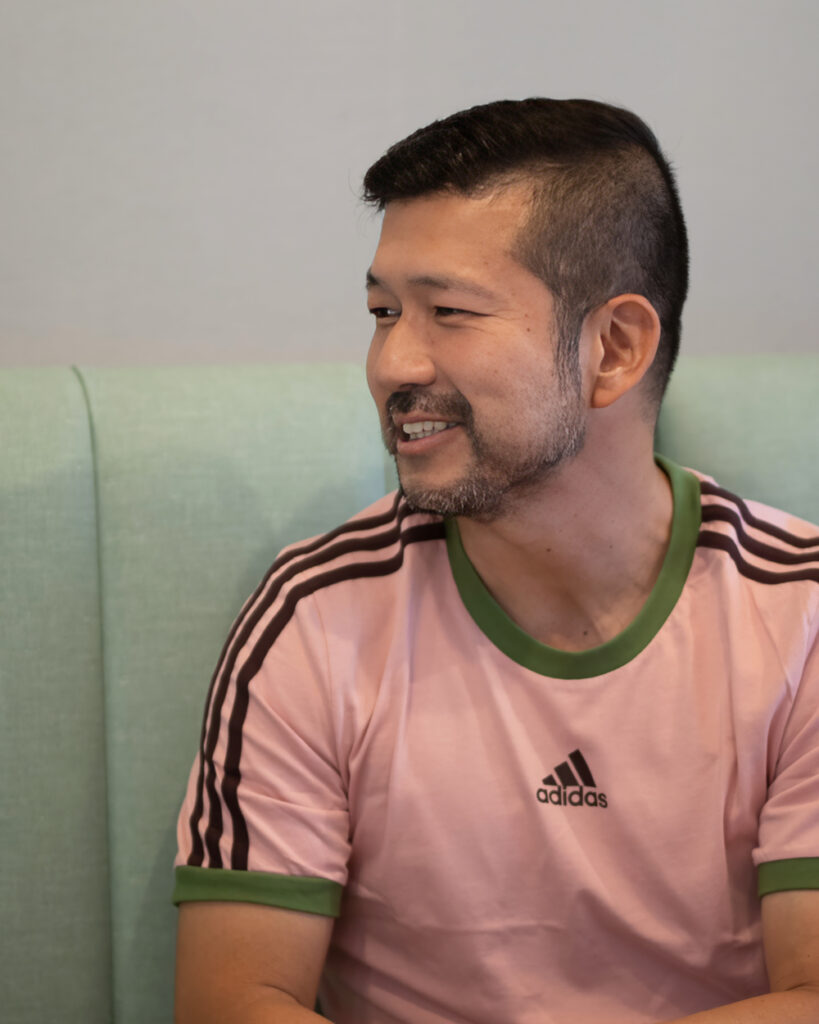
Sakuno: Currently, your title at Google is ‘Head of Inclusion and Equity Program,’ and you are responsible for Diversity, Equity, and Inclusion (DEI) in the Asia-Pacific region. Could you tell us more specifically what you do in this role?
Terasawa: Within the company framework, there are communities called Employee Resource Group (ERG) for those who are historically underrepresented compared to their presence in the market. My team’s job is to support these groups. Not only do I provide support, but I also assist in aligning their activities with the global and regional diversity strategies. I have initiated leadership summits for Asian and Black women within the company and developed programs for LGBTQ individuals as well.
Sakuno: After working in an environment unique to Japan where it is quite difficult to bring about change, and then moving to a company like Google which has an advanced culture in the world and is engaged in various initiatives, how do you feel about the significant differences?
Terasawa: The significant difference lies in the diversity of people you encounter. Not only in terms of race and background but also in the fundamental ways of thinking. Working with people whose perspectives are completely different from yours every day leads to eye-opening experiences. For example, in Japan being a woman set us within a certain expectation, or age-related stigma for that matter. In such a dynamic environment, I find myself becoming aware of my own internalised biases. Being in such a dynamic environment makes it easier for our mindset changes to occur.
DEI Journey Can Start from Where We Are
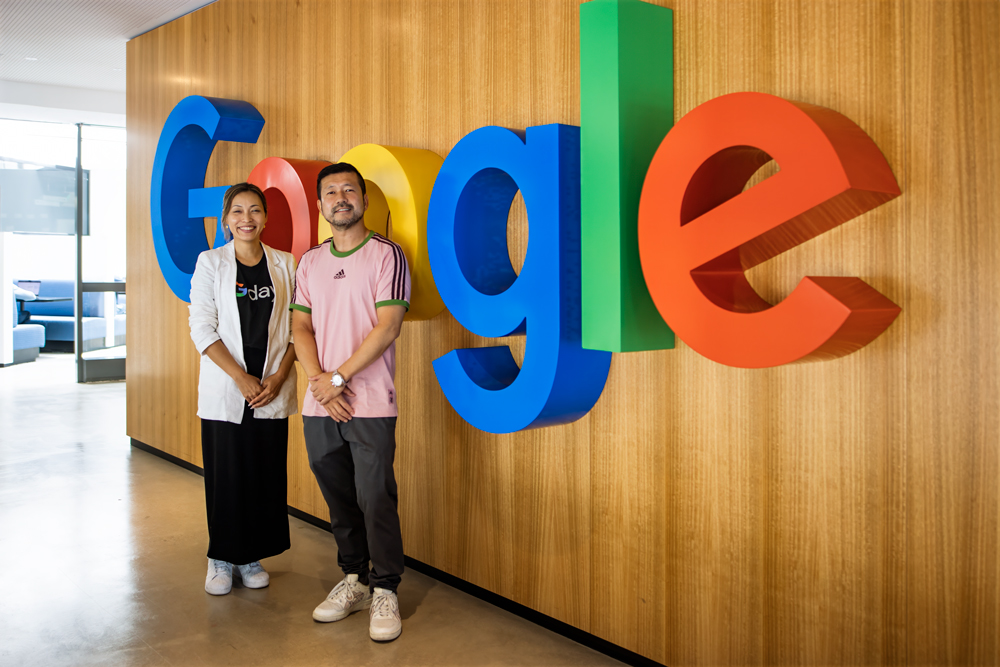
Sakuno: Being a Japanese woman who was born and raised in a rural area, you jumped into a completely different world. That’s why, when working on diversity, you might be able to project yourself into the perspective of minorities and understand their thoughts more deeply.
Terasawa: Diversity may start with differences, but ultimately, through deepening understanding, we arrive at the same point. So, I believe it’s fine for anyone to start from wherever they are. What’s important is that each person does what they can in their own environment.
Sakuno: I feel that DEI is significantly lagging in Japan compared to the rest of the world. What are your thoughts on this? Is there anything you want to do for Japan?
Terasawa: I think Japan has many strengths, but one unique aspect that stands out to outsiders is the fundamental expectation and peer pressure that everyone must be the same, or very little capacity for diverse behaviors. It seems to be difficult to accept the perspective that everyone is different and has their own strengths. Diversity involves incorporating different perspectives, so efficiency decreases temporarily. We cannot avoid this temporary challenge in order for us to harness power of diversity to business innovation. I believe our biggest challenge lies in how to gradually connect diversity of thought, embrace our differences and unlock critical thought transformations while controlling the instinctual rejection towards being different. It’s difficult to prompt change from within where there is a significant peer pressure to stay the same, and often it’s too much burden for those trying to initiate change from within, and they eventually burn out. Therefore it’s necessary and work powerfully to introduce fresh outsider perspectives.
Sakuno: Especially in Japan, there’s a culture of conformity and looking to others for guidance on how to act. Influential individuals hold significant sway, and I think everyone pays attention to what they’re doing. When initiating a movement, joining voices with those who agree with these influential figures might be a highly effective approach in Japanese communities and businesses.
The Importance of Increasing Self-Awareness
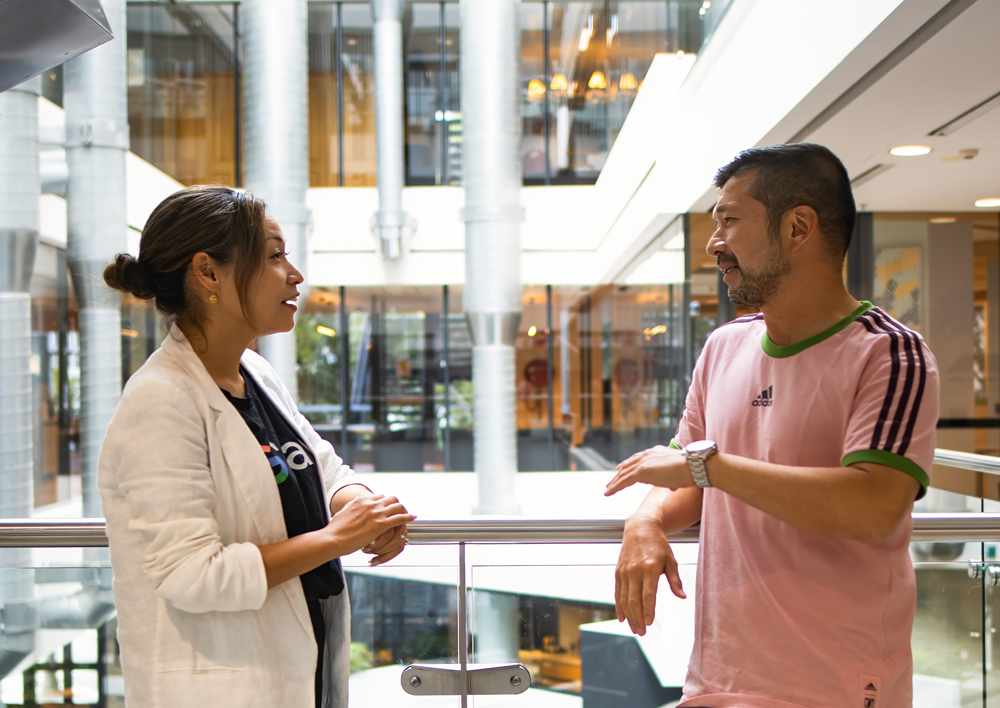
Sakuno: What has been the most challenging aspect of your work in gender, DEI, and as a female leader between Japan and Australia?
Terasawa: DEI is based on the idea that maximizing the diverse characteristics of each employee contributes to creating higher value for a company. However, what a person can do is limited by their level of ‘self-awareness.’ The most difficult aspect is how to raise the self-awareness of each individual. When facing difficult situations, it becomes clear that what individuals can do varies greatly depending on their awareness level. In such situations, I found storytelling is one of the most effective approaches to foster self-awareness. Through listening to various people’s stories, self-reflection becomes possible, and one also feels inclined to share their own story. When sharing one’s own story, it is essential to engage in introspection, and the insights gained there can lead to significant personal growth. Regardless of whether one is a top leader or junior talent, titles have no bearing on the refinement of self-awareness regarding DEI. Even junior individuals with high self-awareness can demonstrate strong leadership in terms of DEI. Google is home to many such individuals.
Sakuno: How do you develop that sense of self-awareness in your life?
Terasawa: I believe it’s through various experiences. It’s through self-reflection born from experience, and whether one has had an eye-opening experience, or what I call ‘aha moments.’ I think it’s about how much you’ve interacted with people whose perspectives differ from your own.
Sakuno: I see. Perhaps in Australian society, compared to Japan where most people grow up within a single ethnic group and culture, there are more opportunities for such experiences from childhood onwards.
Terasawa: Yes, it may be easier.
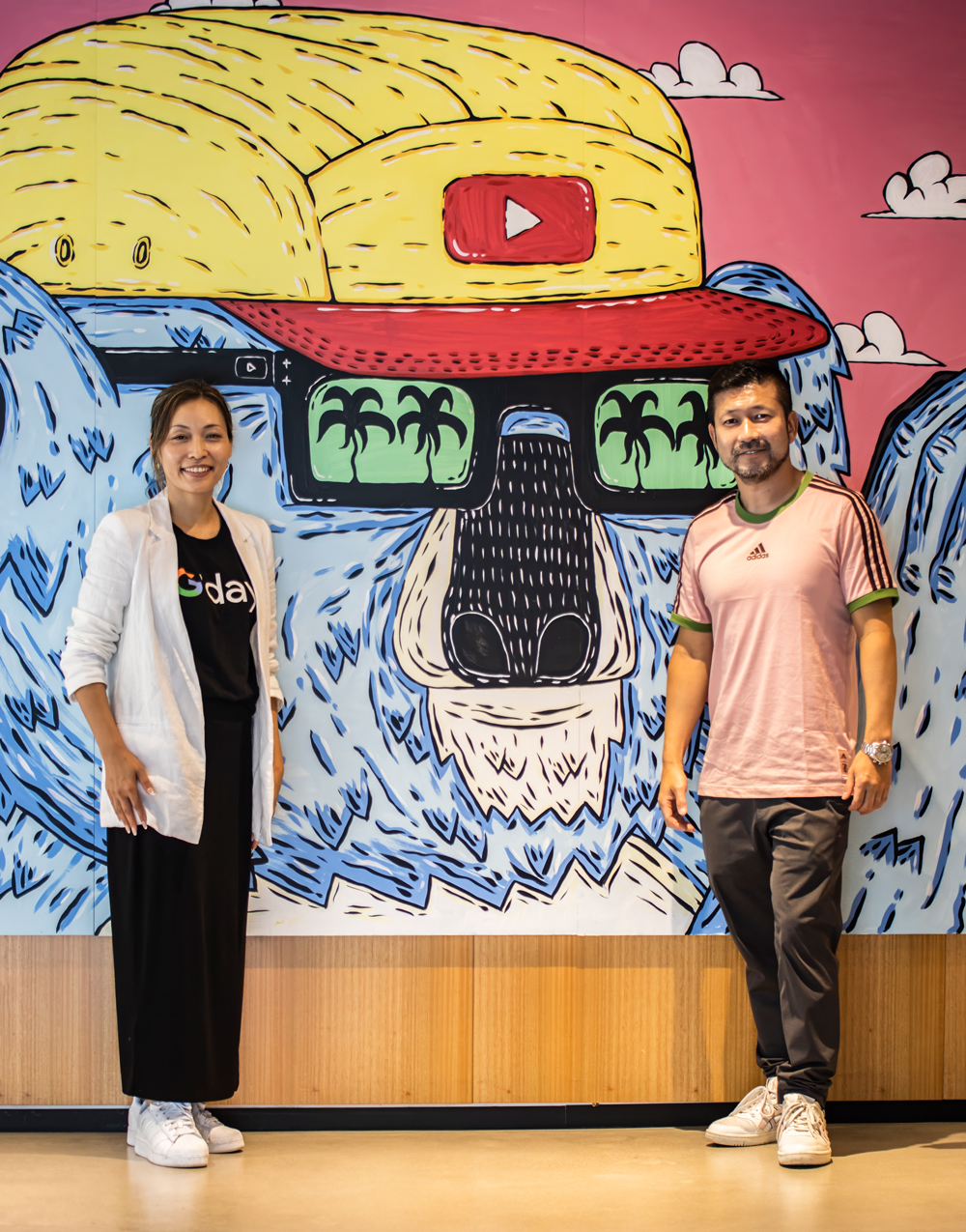
Sakuno: I think it’s really amazing that someone like you, who was born and raised in Japan, is working in such a role at a global company.
Terasawa: I have never thought about it that way, but the more I think about it, it may have been influenced by the fact that Shimane Prefecture has the highest dual-income ratio among all the prefectures.
When I was a child, there were hardly any stay-at-home mothers, everyone was working. So surprisingly, it was natural for children raised in rural areas to be less influenced by urban stereotypes, or rather, they tend to grow up in a more unconstrained environment.
Sakuno: It means they are less likely to be confined by fixed ideas, right?
Terasawa: That’s true for me as well. In public schools, there was what we now call inclusive education, where students with disabilities studied in the same classroom. That was happening to me over 40 years ago. I had a best friend with a prosthetic leg, and in primary school, I had a classmate with autism spectrum disorder who spent time in the same classroom. They would express incredibly creative ideas. I would think, “Oh, I can’t beat that.” So, I feel that those experiences are incredibly relevant and useful in my current role and approach to my work.
DEI Evolving Daily at Every Baseline
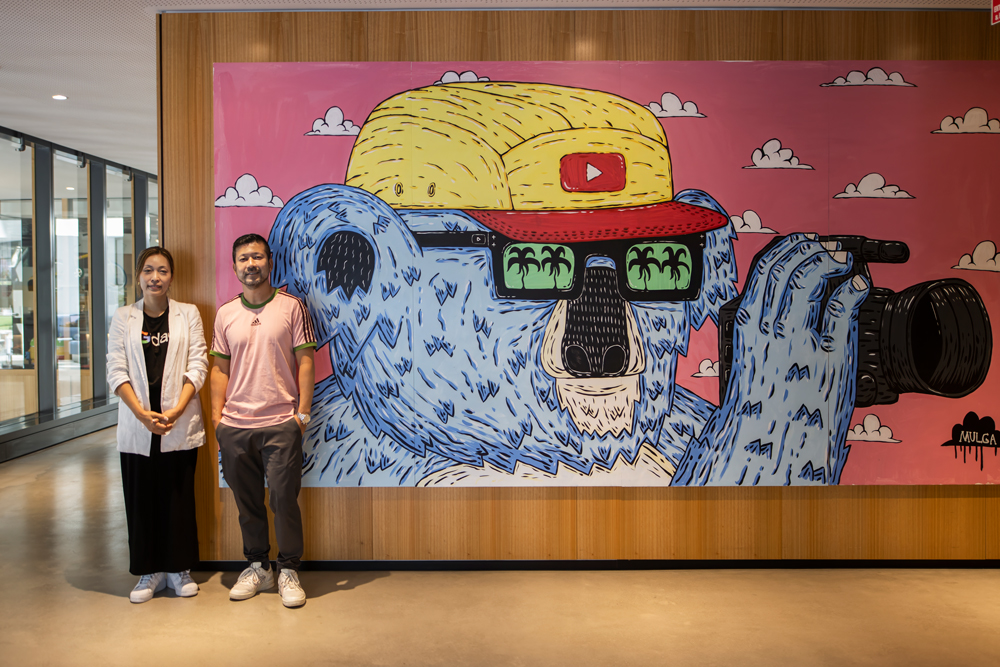
Sakuno: What is your personal career vision?
Terasawa: I’ve always kept in mind the idea of ‘being a bridge,’ harbouring a long-standing dream of bridging gaps between various things. Whether it was as an interpreter, then in medical communication, and now in HR focusing on DEI. The form may vary, but I wish to continue this as my life mission. DEI is at the core of everything, driving innovation. The hot topics of DEI are constantly evolving every day. What used to be topics only about women has expanded to include LGBTQ, disabilities, race, and more. As research progresses in these areas, I believe having a solid vision of DEI and taking action toward it is my life mission.
Sakuno: Finally, could you give a message or advice to the readers of Nichigo Press?
Terasawa: When we’re going through change, it might seem like there’s nothing but hardship ahead. It may be difficult to make the cultural transition, but if you happen to have children or loved ones, think about how you may support them and do the same for you. You might encounter various biases and difficult challenges that were previously unseen – try to see them as opportunities. There are things that only those who have experienced hardships can do. That’s why, when the time comes to take on a challenge, it’s good to maintain our positive mindset, thinking “What can I learn from this!?” similar to how to turn lemons into lemonade. By doing so, even difficult times living abroad can stay enjoyable and spent positively.
Sakuno: Thank you.
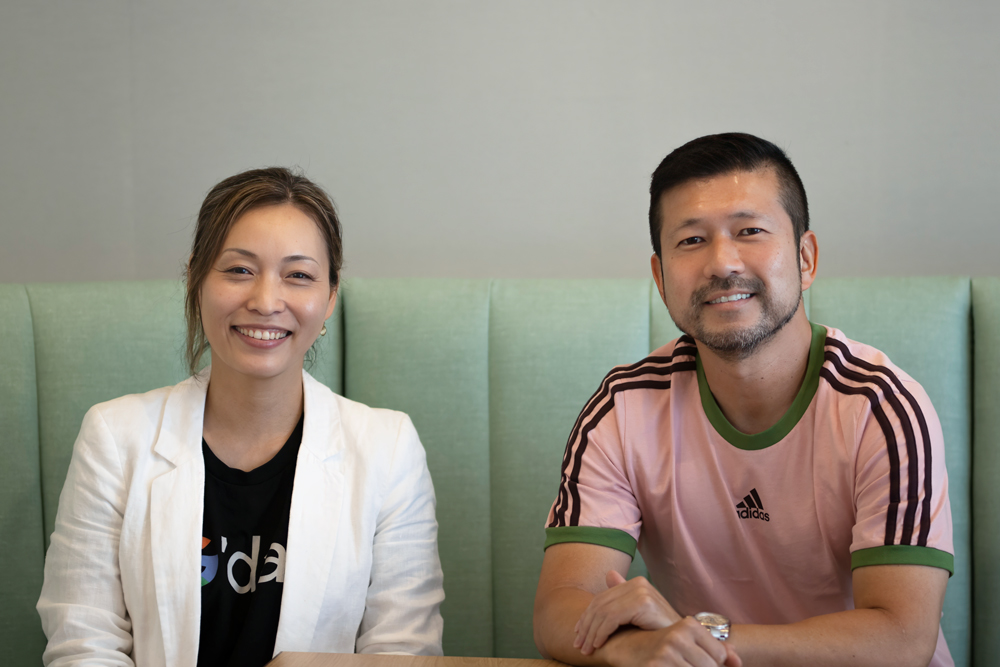
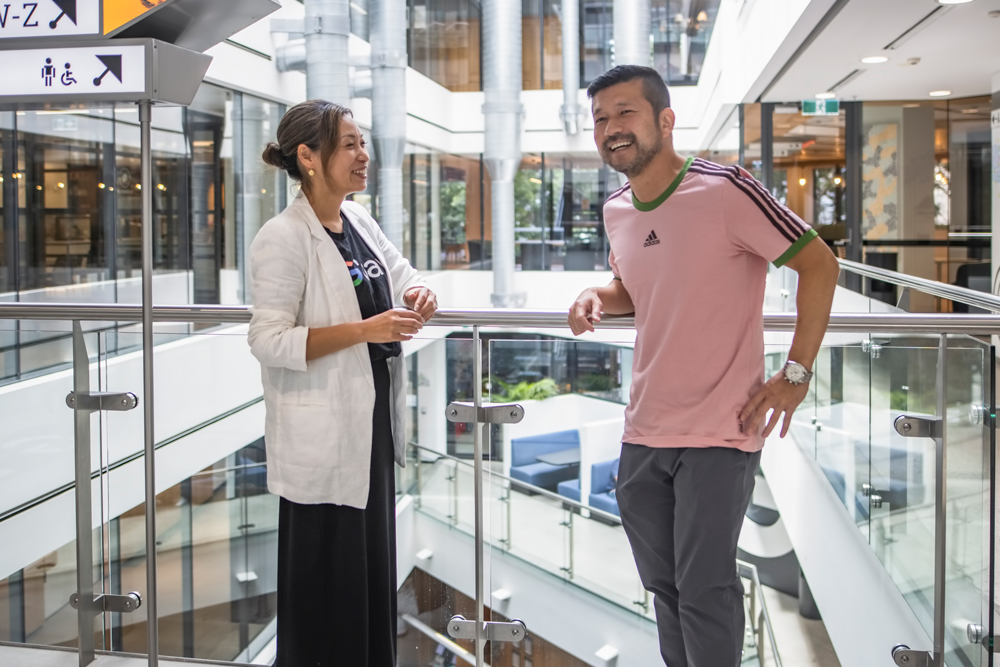
(November 24, 2023, in Sydney)
